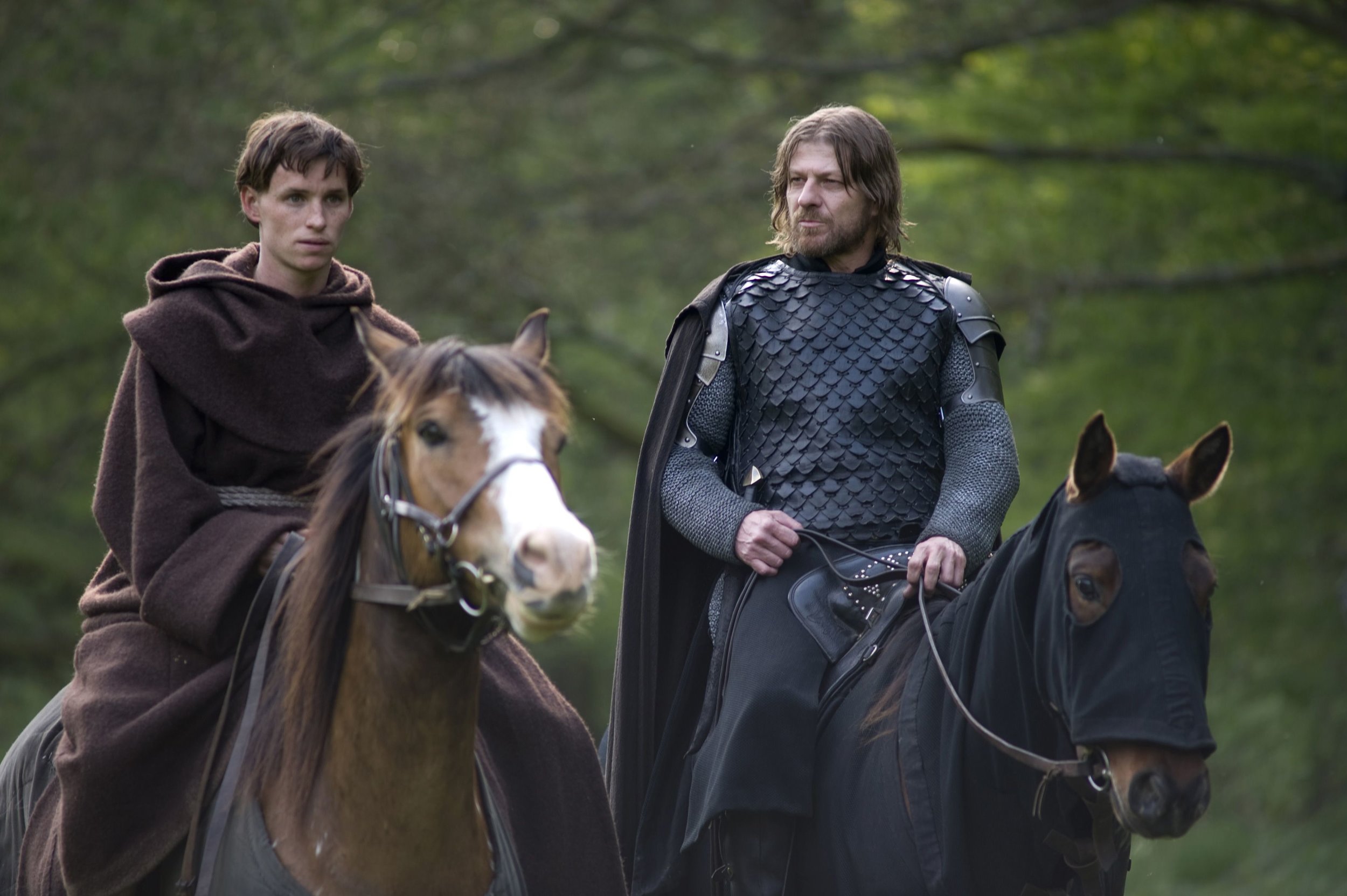Review: Black Death (2010)
Most movies set in the Middle Ages get their facts dead wrong. How else can we explain the gross inaccuracies that plague medieval films like Season of the Witch? Although accuracy should never be the sole determiner of whether a historical film is good or not, the historical fidelity of Black Death grounds the film in a reality where the events onscreen that seem to be mere horror movie circumstances are validated through their historical factuality. This accuracy dismisses any idea that the film is operating in hyperbole, thus, making it easy to believe that everything happening onscreen is real — a disturbing fact considering that there are many atrocious actions committed in this film. The plot is standard medieval fair. A conflicted novice monk (Eddie Redmayne) guides a band of zealous knights to a remote village where the inhabitants have escaped the plague by rejecting God. This typical plot bears more than a passing resemblance to Season of the Witch — a legitimate knee-jerk reaction would be to merely say that Black Death is the good version of Season of the Witch. However, beneath all the rats, rotting bodies, and festering plague wounds that give the film its horror atmosphere, Black Death is primarily an exploration of faith.
This too is not new for movies about the plague — The Seventh Seal uses the plague as a catalyst for an existential crisis. Luckily, like Bergman, director Christopher Smith and writer Dario Poloni are never black and white in their exploration of faith. They avoid the modern flaw of writing the Church off as merely superstitious power-mongers, while still showing how terrifying the unwavering religious zeal it fosters can be.
The Christians are brutal, but not cartoonish. Specifically, the character of Ulric, played with frightening intensity by Sean Bean, demonstrates how disturbing the medieval sense of faith can be. When he executes a woman accused of poisoning a village well without second thought, we are horrified by his actions. However, Black Death is not satisfied with merely showing us these horrific actions. It analyzes them, demonstrating how Ulric does not use his faith as an excuse to do evil, but thinks his brutal actions are an extension of his faith. He is absolutely convinced that he is doing God’s work. It may not be a popular modern view of religious fundamentalism, but one of Black Death’s strengths is how it shows that medieval religious thought was intrinsically different than our own and that what we consider evil nowadays could’ve been thought of as good in the past; medieval morality and modern morality exist within two separate spheres.
Smith and Poloni also do a good job of manipulating our allegiances, swinging us back and forth between sympathizing with the Christian mercenaries and the Pagan village. However, when all’s said and done, both sides look pretty despicable. The film’s climax makes sure that none of the characters remain with his or her morality intact. The ending is also overwhelmingly bleak for depicting how a desire for vengeance backed by religious zeal can create a black hole of morality.
Black Death has enough horror trappings to satisfy the genre viewers, but is also smart enough to entice those looking for more than just sword fights and gruesome torture scenes. It may fall prey to a few pitfalls, mainly its simplistic view of paganism complete with hippie/witch female leader, but its nuanced approach to Christianity makes up for the imbalance. Black Death may never reach the level of The Seventh Seal, but it is one of the few medieval films that is both historically accurate and intellectually satisfying.
7 out of 10
Black Death (2010)
Directed by Christopher Smith; written by Dario Poloni; starring Sean Bean, Eddie Redmayne, and Carice van Houten
